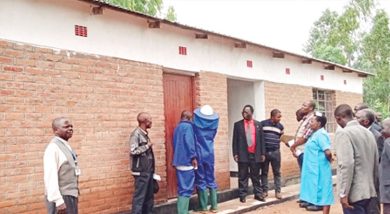Councils resist audit on K30bn funding
Several local councils are resisting government efforts to audit the K30.9 billion funding for development projects they received in the past five years.
The projects include Constituency Development Fund (CDF) which totals K16.7 billion, District Development Fund (DDF) which amounts to K10.2 billion and funding for boreholes pegged at K4 billion, according to statistics from National Local Government Finance Committee (NLGFC).

The K30.9 billion figure does not include funding for the Local Development Fund (LDF), a mechanism that was designed to pool together all funding for local development initiatives into one basket to realise a harmonised approach in their implementation to achieve efficiency.
Councils are expected to produce a monthly financial management report, quarterly financial management report as well as final accounts which are supposed to be audited.
But six months after NLGFC ordered the councils to submit a list of unfinished projects and reasons for the same, only three out of the 35 councils have responded.
The three councils, namely Blantyre District, Blantyre City and Zomba District responded to the instructions in February this year.
A letter, dated December 5 2018, from NLGFC and addressed to all district commissioners (DCs) and chief executive officers (CEOs) of councils, town and cities, which we have seen, instructs the officials to submit a list of all uncompleted projects.
In a telephone interview last week, NLGFC executive director Alifeyo Banda confirmed authoring the letter.
The letter requests the councils to indicate date of commencement of project, the donor and reasons for stalling as well as when the councils intend to complete the projects.
According to Banda, out of the three councils, only Blantyre District furnished his office with a detailed list of the uncompleted projects whereas Blantyre City and Zomba District did not have relevant details.
When contacted this week, Banda expressed concern for the continued delays and hinted that his office intends to write the councils a reminder.
Nevertheless, Banda said, according to Local Government Act, his office is empowered to surcharge councils found to have ineligible expenditures.
The demand for audit of projects in councils comes in the wake of reports of misappropriation and gross abuse of funds by some councils.
The stalled projects include school blocks, bridges, hostels, teacher’s houses, health centres and markets.
Nation on Sunday sampled Karonga, Blantyre, Mchinji and Nkhotakota district councils, whose results show that a minimum of four uncompleted projects per council costs K40 million—translating to K160 million.
This means that for the 35 councils, government must have spent about K1.1 billion on projects which remain uncompleted.
Our findings also show that majority of the projects have stalled because project management committees mismanaged funds.
In an interview, Malawi Local Government Association (Malga) executive director Charles Chunga described the defiance by councils as unfortunate and unbecoming.
Chunga is of the view that some councils are not comfortable to have their projects audited because they are afraid of accountability queries.
The Malga boss also disclosed that his office intends to conduct a survey on performance of councils and outgoing councillors to ascertain whether decentralisation is on the right track.
Social and governance commentator Makhumbo Munthali, in an interview, pointed out that councillors who are supposed to provide oversight functions on how funds are run in the councils have not discharged such roles due to lack of capacity to monitor financial related transactions.
Said Munthali: “As a result, the powerful and influential secretariat and in some cases in collaboration with MPs have implemented such projects without such oversight in the process leading to cases of abuse of resources.”
Studies show that mismanagement of such funds has left beneficiary communities no better than they were before the projects.




